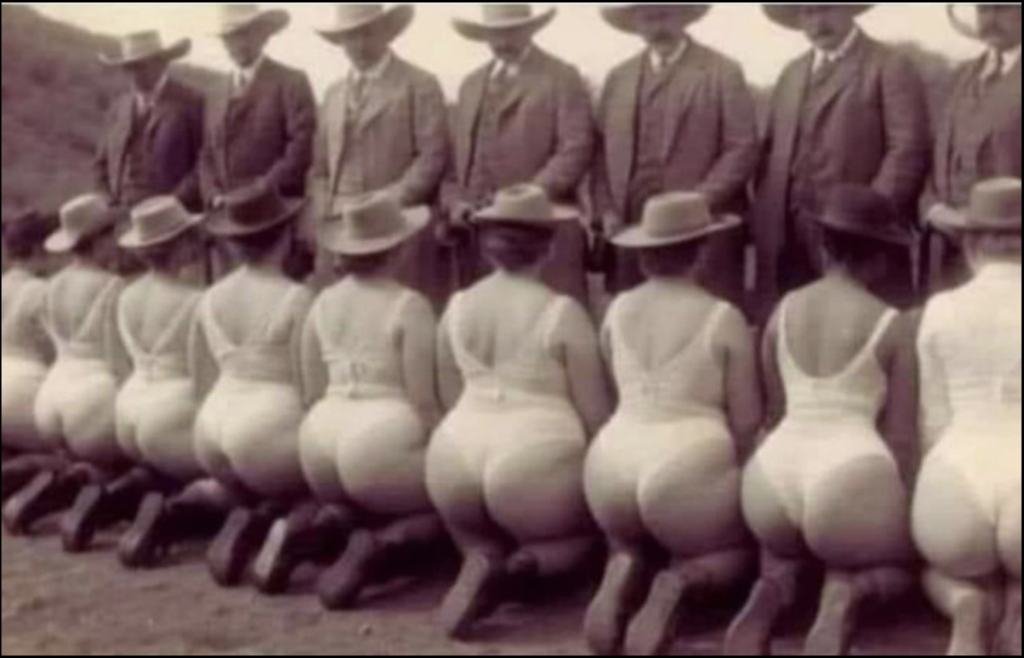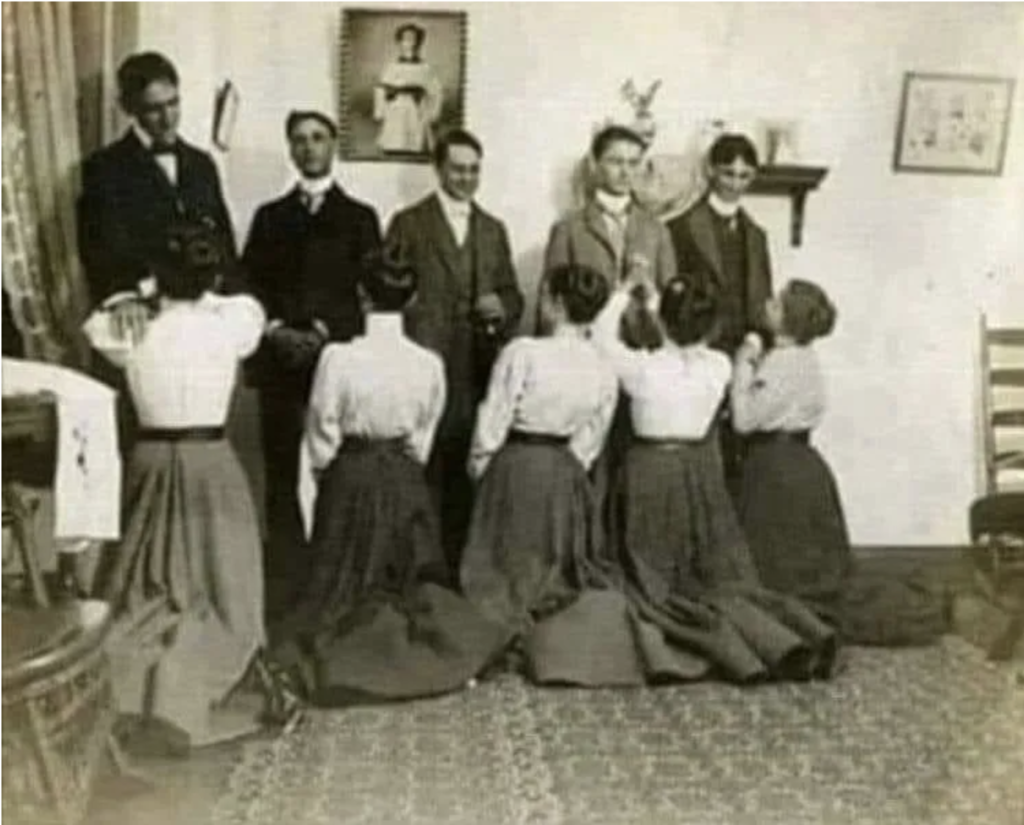In the annals of history, amidst the tapestry of the 19th and early 20th centuries, a distressing tradition cast a shadow over the lives of women, shrouded in the pervasive dominance of patriarchy and the expectation of subservience.
Each passing December 31st bore witness to a solemn spectacle: women, compelled by societal pressures, knelt before their husbands in a public display of contrition for perceived wrongs throughout the year. This ritual, a relic of its time, not only underscored the imbalanced power dynamics within marital bonds but also laid bare the entrenched misogyny woven into the fabric of society. In an era where women found themselves confined to domestic spheres, devoid of autonomy or agency, this annual rite served as a stark testament to their subordinate status.

Imagine the scene: a throng of onlookers, their eyes fixed upon the woman, her form bowed in deference as she confessed her supposed transgressions. From charred suppers to neglected chores, no fault escaped scrutiny. In her plea for forgiveness, she surrendered her dignity to meet societal expectations, her value weighed solely by her compliance with the dictates of wifely obedience.
Yet beneath the veneer of tradition lay the insidious toll exacted upon women’s mental well-being. Compelled to publicly atone for their perceived inadequacies, they internalized a sense of insufficiency, perpetuating a cycle of self-doubt and insecurity. Reduced to mere appendages of their spouses, their voices silenced by societal dictates.

Amidst this sea of adversity, a flicker of defiance emerged. Brave women dared to defy convention, challenging the established order and asserting their rightful place in society. They refused to be bound by antiquated norms, championing their independence and demanding parity.
As we reflect upon this troubling epoch, let us not consign it to the annals of yesteryear. Instead, let it serve as a poignant reminder of the enduring struggle for gender equality and the imperative of dismantling oppressive structures. By confronting the injustices of the past, we pave the way for a more equitable future—one where every individual can live and love without fear of discrimination or retribution.
